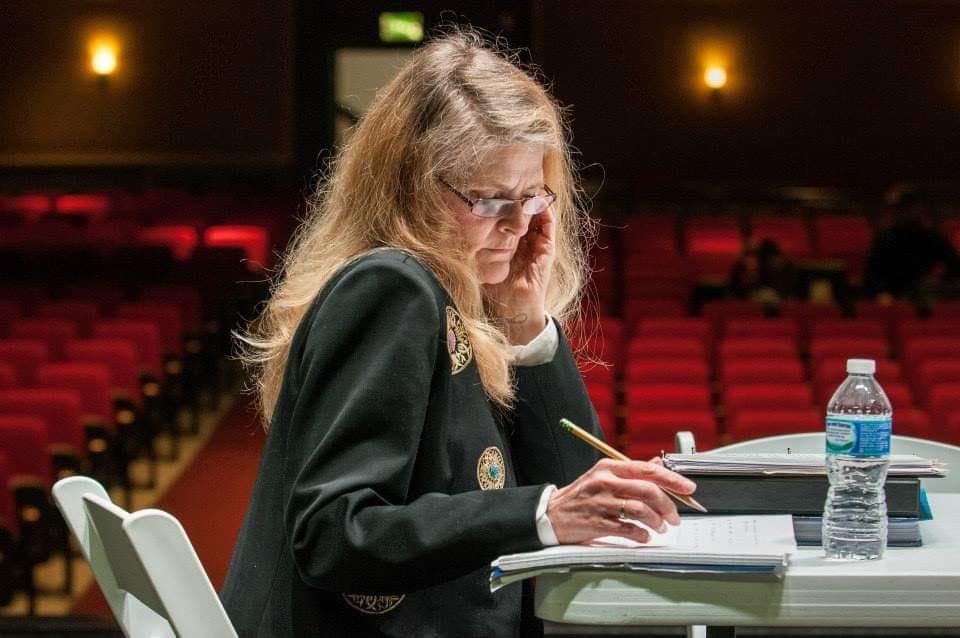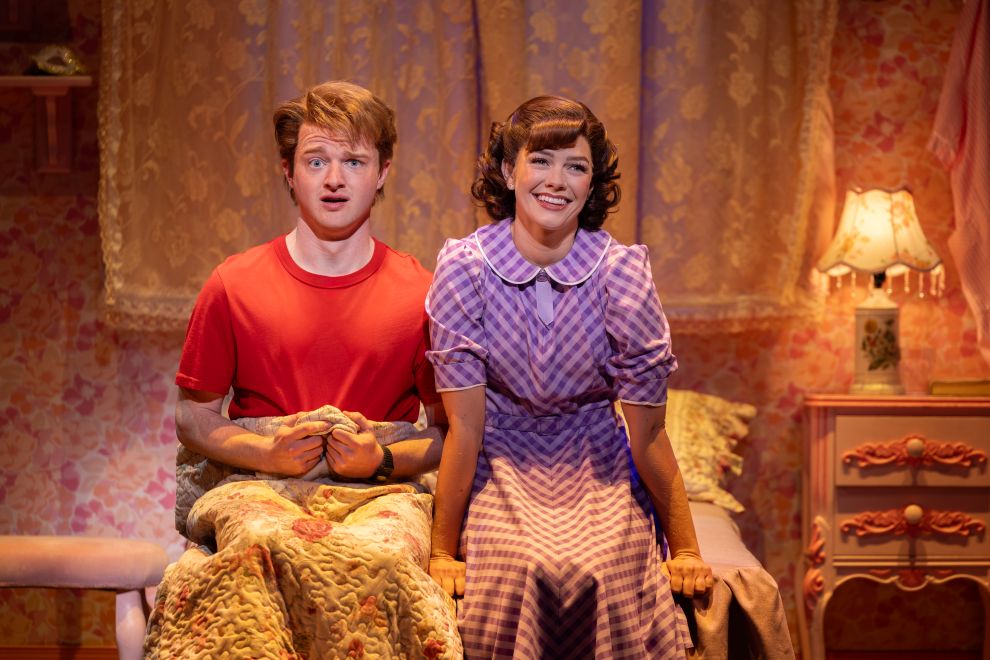When first-time director Julie Fulcher-Davis read the script for Log Cabin, she knew there was something important about the piece, but she couldn’t quite grasp its full meaning.
“It could not be defined quickly and easily,” she says of the play, which runs April 28 through May 20 at Richmond Triangle Players. “Maybe that’s the point, because the play itself leaves the audience with the job of defining what it means to them. Isn’t that what any good art does? It evokes feeling and thoughts that challenge us.”
The play, written by Jordan Harrison, focuses on three couples – one gay, one lesbian, and a transgender friend and his girlfriend.
“The audience is invited into the decadent Brooklyn apartment of the lesbian couple to listen in on conversations that range from marriage and babies to quince paste,” Fulcher-Davis says.

A conversation about their transgender friend reveals the lesbian couple is struggling with the trans movement. When they decide to invite their friend Henry and his girlfriend over for dinner, the hard conversations begin.
“These are the painful, controversial ones, the ones that tap into the emotional wounds of the characters and turns members of the same community against each other,” Fulcher-Davis says. “In the course of ninety minutes, this cast of six characters mirror to the audience the shared suffering in humanity that creates the very pain that keeps us from what we truly long for thereby keeping us stuck in the same place.”
Yearning is the essence of the play, she adds, “Yearning to belong, yearning to be seen, yearning to be heard, yearning to be validated.”
The play speaks to the world we live in – one that has changed drastically because of COVID and a world that continues to change and evolve.
“I think humanity as a whole is still feeling the pain of isolation the pandemic forced us into. In that isolation we are desperately longing to feel connected again, but we know we must find connection in a way that breaks the real barriers that keep us separated,” Fulcher-Davis says. “COVID and [the murder of] George Floyd shifted the paradigm allowing for the opportunity to look at and heal some pretty big wounds in our societies and our world at large.”
Fulcher-Davis says the story within Log Cabin is an example of how people can create isolation within what she calls mistranslations and “a lack of willingness to listen and see things from a different point of view,” she adds. “This can be uncomfortable because it calls us to be accountable and to do the hard work necessary to create the necessary changes.”
The play brings visibility to the current struggle with the targeting of the trans community in particular. “On a deeper level, it cautions us with the message: We will not build a world of complete inclusion if we keep choosing to leave someone out,” Fulcher-Davis says.
It uses comedy to drive the serious issues it addresses.
“I want the audience to laugh as they watch the story unfold. Then my hope is they walk away as curious as I was about all that playwright Jordan Harrison is trying to tell us in this play,” Fulcher-Davis says. “I want them to have conversations about the experience. What made them laugh? What made them uncomfortable? What made them think? What ending did they yearn for? Conversations connect us, hearing each other connects our hearts, and when hearts connect, it allows for the possibility to tear down the walls that keep us apart.”
Log Cabin has no ending, and that’s intentional, she adds. “We have to write [the ending] and more importantly we have to choose how we will write it.”
Log Cabin, appropriate for ages sixteen and up, opens Friday, April 28 and runs through May 20 at the Richmond Triangle Players’ Robert B. Moss Theatre.
For showtime and tickets, visit rtriangle.org.




